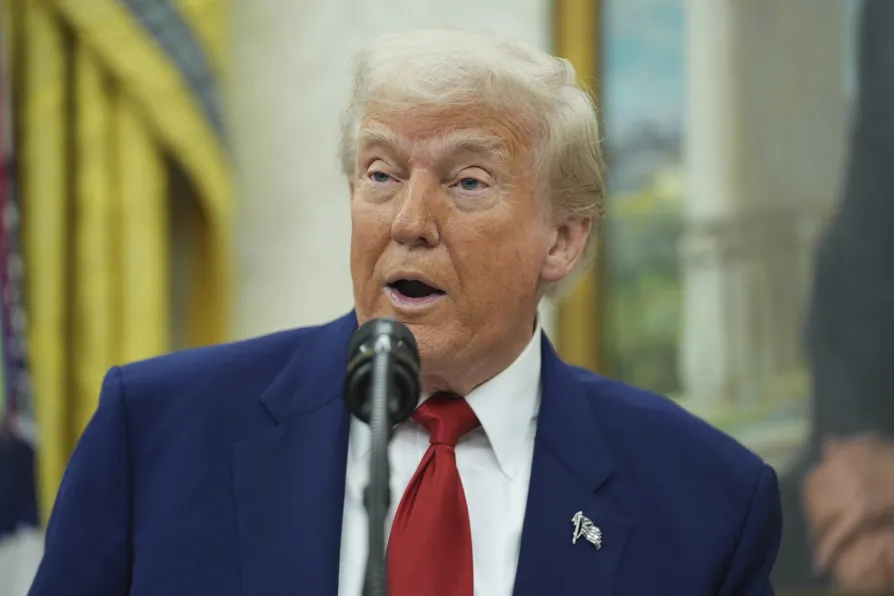
 US President Donald Trump speaks during a swearing in ceremony for interim US Attorney General for the District of Columbia Jeanine Pirro, May 28, 2025, in the Oval Office of the White House in Washington
US President Donald Trump speaks during a swearing in ceremony for interim US Attorney General for the District of Columbia Jeanine Pirro, May 28, 2025, in the Oval Office of the White House in Washington
A FEDERAL court blocked United States President Donald Trump on Wednesday from imposing sweeping tariffs on imports under an emergency-powers law.
The ruling amounted to a categorical rejection of the legal underpinnings of some of President Trump’s most controversial actions of his four-month-old second term.
The administration swiftly filed notice of appeal — and the Supreme Court will almost certainly be called upon to lend a final answer — but it casts a sharp blow.
The ruling from a three-judge panel at the New York-based US Court of International Trade came after several lawsuits arguing that President Trump’s Liberation Day tariffs exceeded his authority and left the country’s trade policy dependent on his whims.
President Trump has repeatedly said that the tariffs would force manufacturers to bring back factory jobs to the US and generate enough revenue to reduce federal budget deficits.
He used the tariffs to force other nations to negotiate agreements that favoured the US, suggesting he would simply set the rates himself if the terms were unsatisfactory.
White House spokesperson Kush Desai said that trade deficits amount to a national emergency “that has decimated American communities, left our workers behind and weakened our defence industrial base — facts that the court did not dispute.”
The administration, he said, remained “committed to using every lever of executive power to address this crisis and restore American greatness.”
But for now, President Trump might not have the threat of import taxes to exact his will on the world economy as he had intended, since doing so would require congressional approval.
The ruling left in place any tariffs that President Trump put in place using his section 232 powers from the Trade Expansion Act of 1962.
He put a 25 per cent tax on most imported autos and parts, as well as on all foreign-made steel and aluminum. Those tariffs depend on a Commerce Department investigation that reveals national security risks from imported products.

Washington’s tariff policies become explicable in light of the US economy’s relative decline and the astonishing rise of China, argues MICHAEL BURKE













